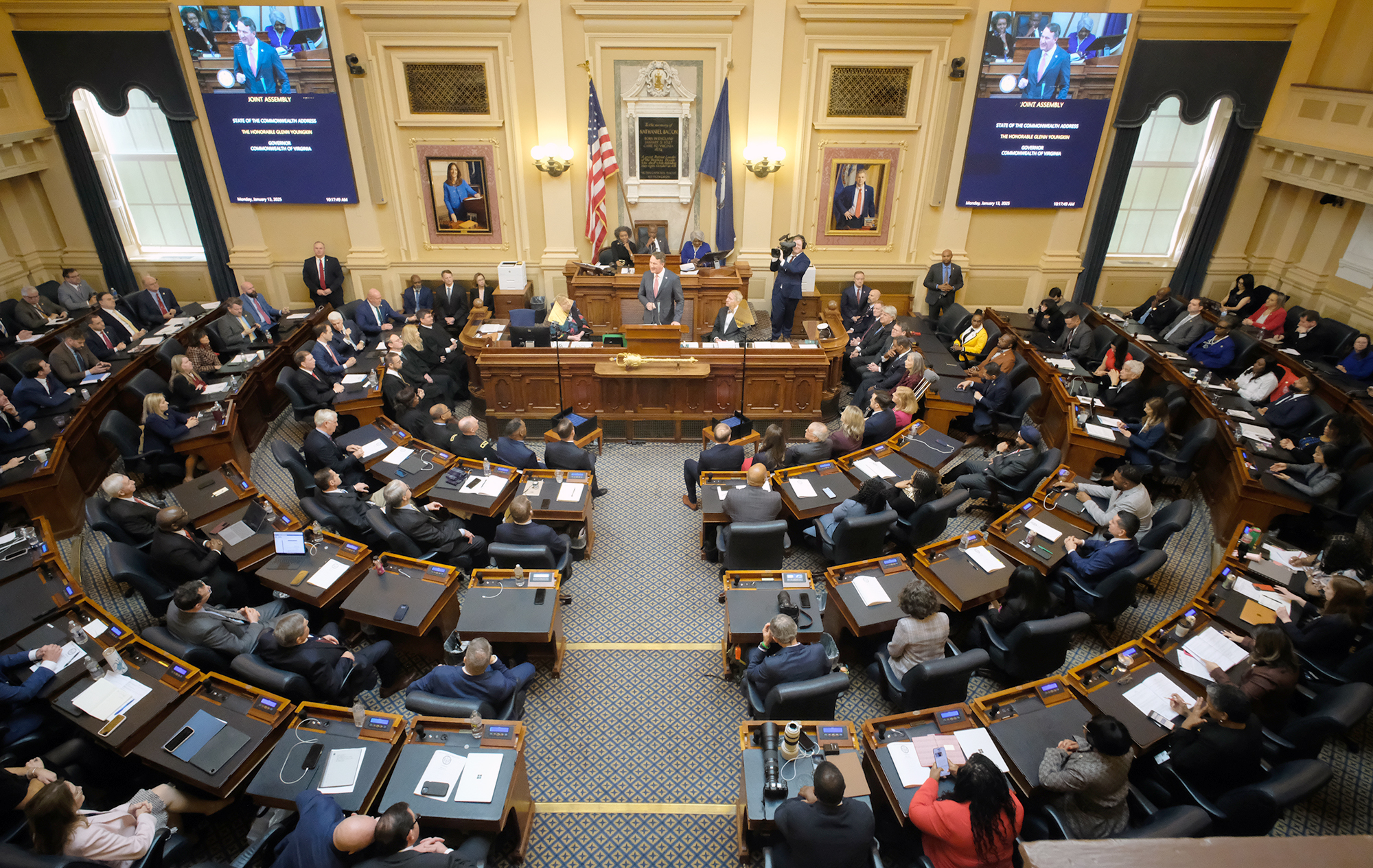Gov. Glenn Youngkin waded into the issue of land use rights regarding solar power and data centers during his annual State of the Commonwealth address Monday morning.
Data centers and solar farms to support the energy needs of those centers, and the question of who has control over the land they’re built on, has begun to rankle residents in Southwest and Southside Virginia as developers eye the expansive and bucolic greenspace.
Youngkin, a Republican, noted in his address that the demand for energy in Virginia is growing and the cost to import that energy is growing. He also shared his desire for Virginia to become the “data center capital of the world.” But, he said, the state must not use the “growing economy and growing need for power as an excuse to end local control of solar project siting.”
“Local communities must be able to exercise their rights with regards to land use. The same goes for industrial development, including data centers,” he said, after suggesting that Virginia should build more natural gas production.
Democratic lawmakers have noted that, while they support land-use rights remaining under the purview of localities, a number of local governments are green-lighting data center development but not the energy projects, like solar farms and other energy-producing infrastructure, needed to support the centers once they’re up and running.
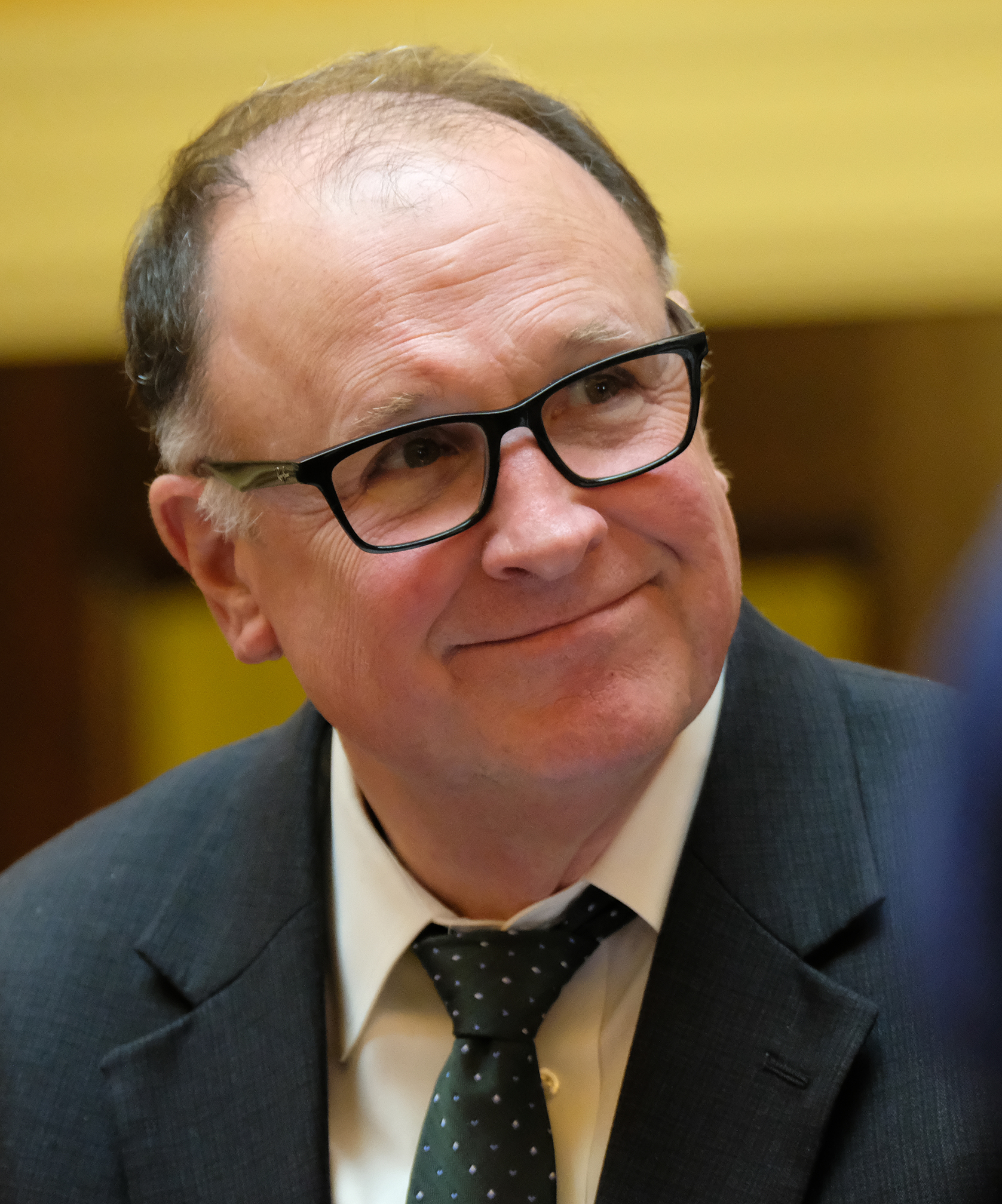
“We’re just trying to solve a problem, and the problem is localities say yes to the tax revenue that comes from data centers, and I’m glad they do, but we also have to meet the energy demands of those data centers,” said Sen. Creigh Deeds, D-Charlottesville.
He noted that solar alone won’t meet the energy needs of data centers, but that it needs to be a part of the “all the above” answer that Youngkin and other Republicans have mentioned.
“It strikes me that other energy sources that [Youngkin is] talking about, like natural gas, also infringe on localities — natural gas pipelines go through farms, they go through rural areas,” Sen. Schuyler VanValkenburg, D-Henrico County, said during a phone interview.
Virginia: the data center capital of the world? Not without power
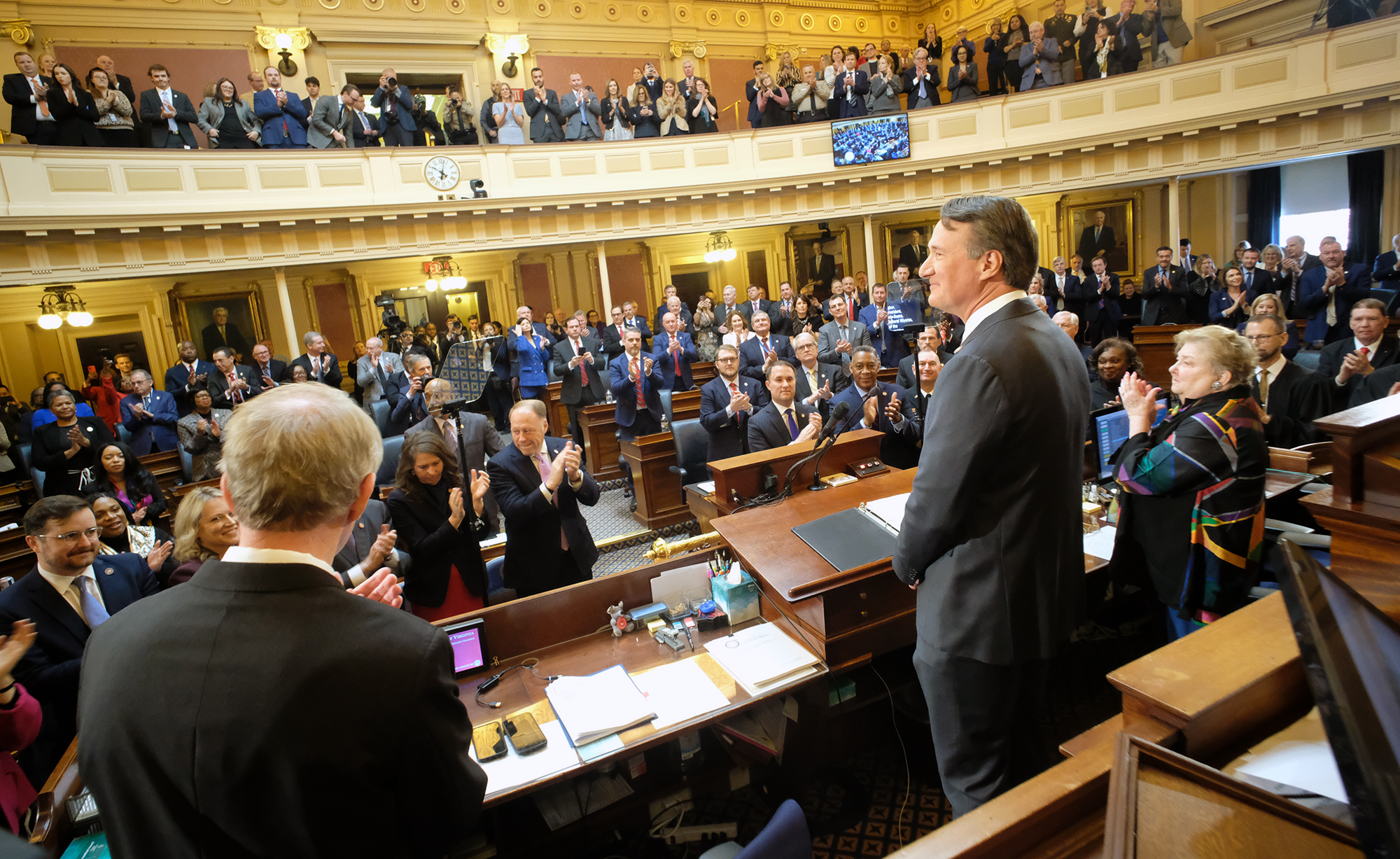
A handful of centers exist in the Southwest and Southside regions, and officials in the Southwest have said that they hope to develop another at a former coal mine site that has been dubbed Data Center Ridge.
The data centers that dot the state have been economic drivers for the commonwealth, Youngkin argued. Hundreds of the centers call Virginia home, with the largest concentration of them in Northern Virginia.
Data centers are also the driving force behind an increased need for energy production in the state.
If the anticipated growth of those centers in the commonwealth continues unconstrained, the state’s electricity consumption could nearly triple by 2040, according to a study by the Joint Legislative Audit and Review Commission, or JLARC. The commonwealth’s electricity usage would increase just 15% during that same time period if there were no new energy demand associated with data centers, according to the study.
The study found, among other things, that nearly all of Virginia’s projected electricity demand growth in the coming years can be attributed to data centers and substantial investments in solar, wind, nuclear and natural gas power would be necessary to help meet that need.
Supplying the power required for potential unconstrained data center growth has been characterized as “very difficult” by Mark Gribbin, JLARC’s chief legislative analyst. Gribbin said that to help meet the data center-driven demand, Virginia would have to add new solar facilities at twice the rate that it did last year.
In his address, Youngkin noted that Virginia now imports roughly 40% of the state’s power needs compared to 18% in 2020 and that the cost of that imported power is “almost” 10 times higher than it was a year ago.
To fix this, Youngkin said, the state would need to nearly double its power generation in the next 10 years, but he singled out two sources of clean energy for the chopping block.
“Wind and solar aren’t going to get it done,” he said. “We must stop decommissioning our baseload generation, build more natural gas generation, lots of it, build small modular reactors and, yes, finish the projects currently underway.”
VanValkenburg pointed out that the more data centers that are green-lit, the higher the need for energy will be.
“We have a lot of localities that are green-lighting data centers, but we don’t have a lot of localities that are green-lighting energy projects,” he said. “Literally, it can’t continue. Our energy needs will be too big and will make it too expensive for Virginia citizens, and it will drive business out of Virginia because their energy cost will be too expensive.” 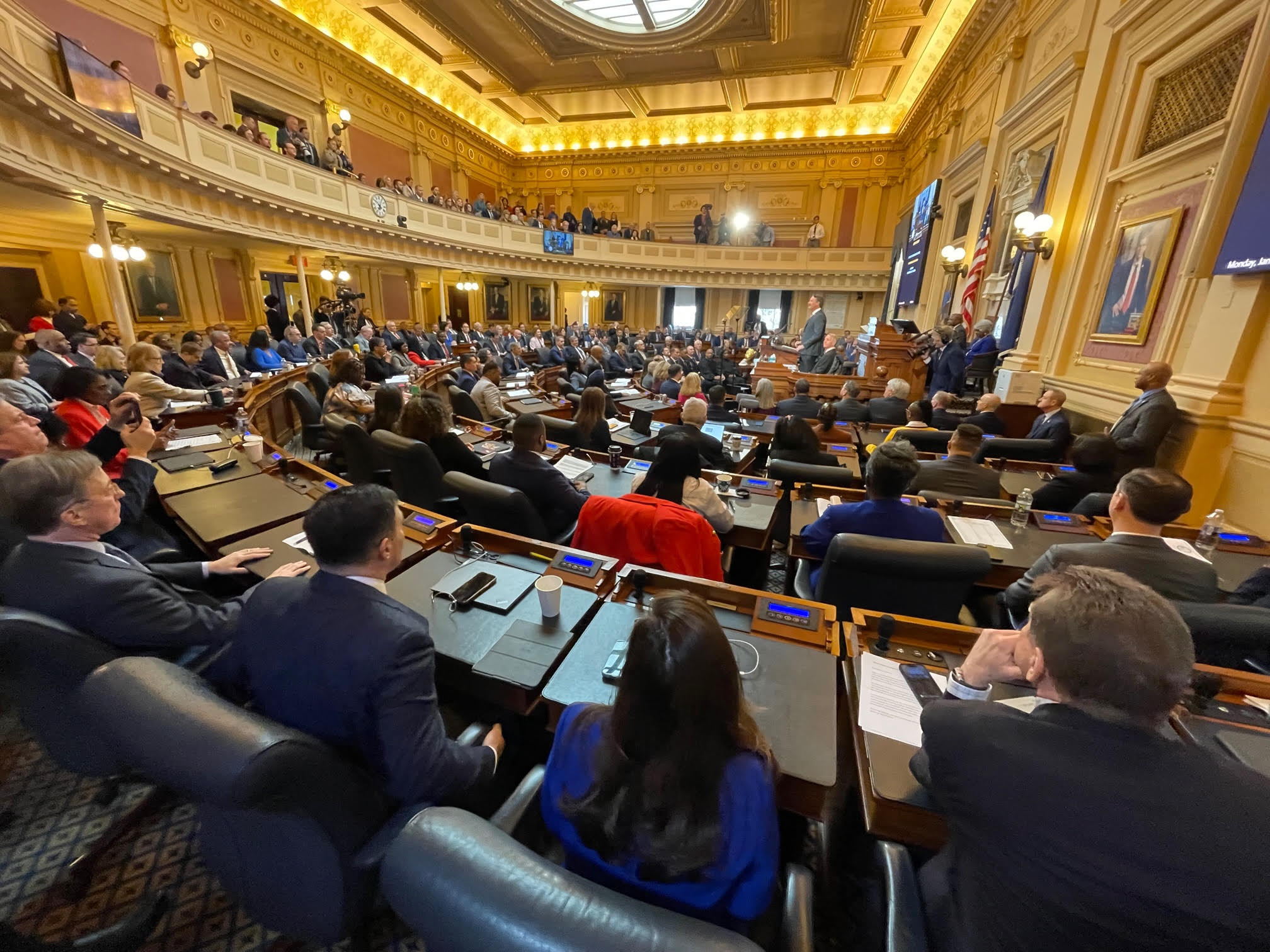
Youngkin touts data center-related job growth
In his address, Youngkin said data centers have supported 74,000 jobs and brought in $9.1 billion in Virginia gross domestic product. They have generated billions of dollars in local revenue that has supported education, public safety and critical local services, he said.
“We should continue to be the data center capital of the world and make sure Richmond is doing what is necessary to support that goal,” he said but added, “Different communities will make different decisions on data centers, but these must be their decisions. And Richmond should not stop them from capitalizing on these incredible economic opportunities.”
Deeds called the actions of local governments that agree to data centers being built in their localities, but not the solar energy production, shortsighted and noted that often, the centers and the solar farms are often a multilocality issue.
“I’ve heard from some people in the agriculture community that are concerned about the loss of farmland, and I am too; the reality is we lose a whole lot more farmland to commercial and residential development,” he said. “If landowners want to develop solar, they ought to have the right to do it.”
VanValkenberg argued that, if Youngkin wants the commonwealth to be the data center capital of the world, Virginia will need energy production to not only support those centers but for residents as well.
“People first, Virginia citizens first,” he said. “Data centers shouldn’t be built on their backs; that’s not right. I think there’s a lot of magical thinking going on in the idea that we can be the data center capital of the world but not dramatically increase the use of clean energy.” 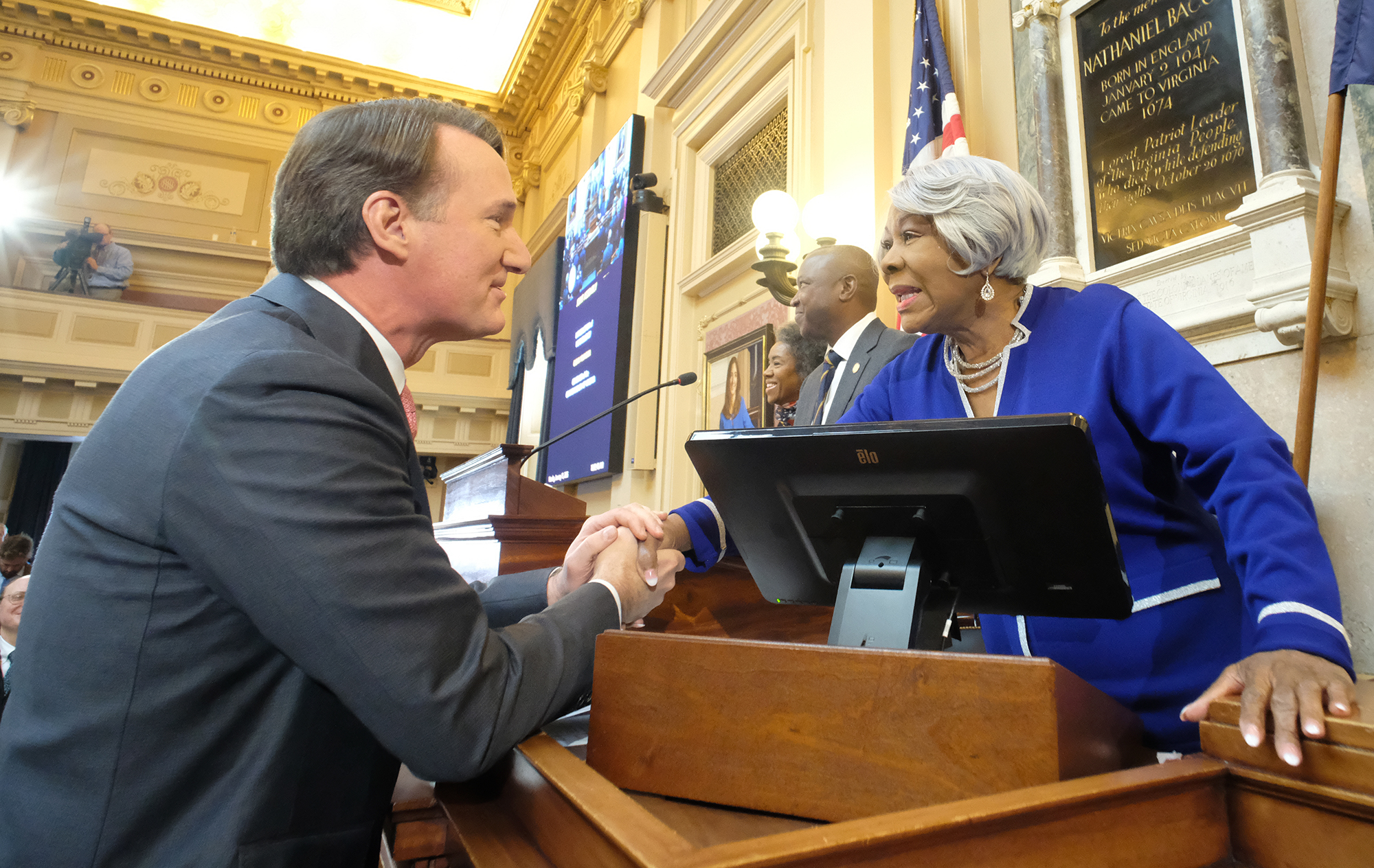
Other notes Youngkin hit in his State of the Commonwealth address
Youngkin ticked off job growth and the state’s billions in surplus as evidence of a job well done over the last year.
Initiatives he has pushed ahead of the 2025 session, that he again championed in his annual address, include “no tax on tips” modeled after a campaign promise made by President-elect Donald Trump during the 2024 election, a scholarship program for students from low-income families to support their attendance at a private school, and a standing fund for car tax relief for working families. 